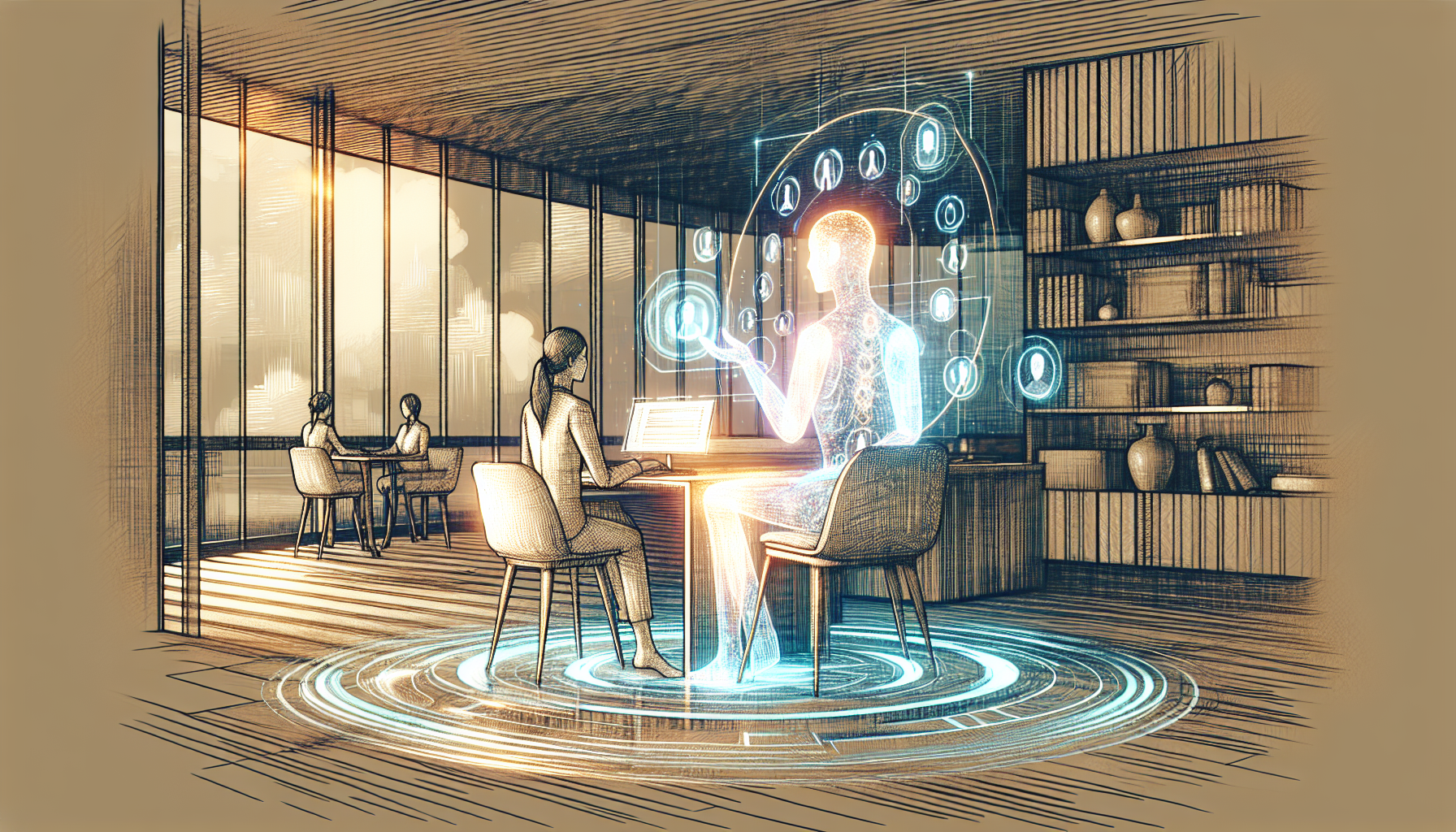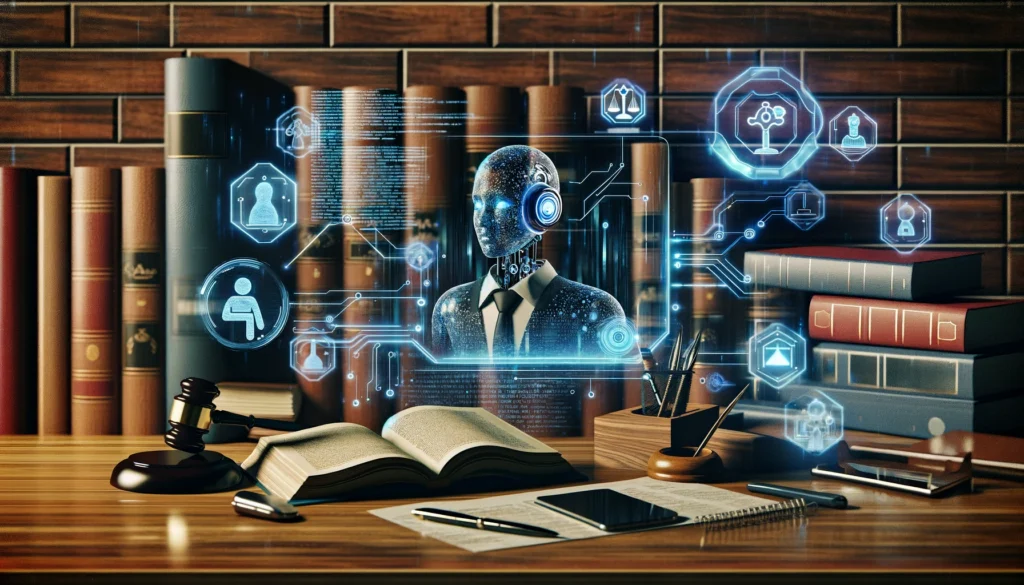
Setting the Stage for Efficiency
In estate litigation, paralegals play a pivotal role, navigating the labyrinth of documents and deadlines to steer cases toward a successful resolution. Given the complexity and volume of information involved, the efficiency of these legal professionals can significantly impact the outcome of a case. AI tools like ChatGPT are revolutionizing legal workflows by offering streamlined solutions to manage these extensive tasks.
Leveraging AI technology can drastically alter the landscape of estate litigation preparation. By automating mundane tasks and expediting complex ones, legal teams can focus on strategic planning and client interaction, working smarter, not harder.
Introducing ChatGPT as Your Legal Ally
ChatGPT, powered by large language models (LLMs), is an invaluable asset in the legal field. This AI can thoroughly process and interpret vast amounts of data, providing real-time assistance to paralegals and attorneys.
The primary benefits of incorporating AI into legal workflows include increased efficiency, reduced error rates, and the ability to swiftly synthesize information from multiple sources. This synthesis enables legal teams to stay ahead of tight deadlines and focus on value-added activities.
Mastering Data Organization with AI: A Strategic Approach
One of the most time-consuming aspects of estate litigation is the review and organization of countless documents. ChatGPT can automatically review and summarize documents, identifying key pieces of information swiftly and accurately. For example, a paralegal can prompt ChatGPT with: “Summarize the main points of this will and highlight any unusual clauses.” Through this simple command, critical information is promptly extracted.
Additionally, AI can be instrumental in organizing and indexing entire case files. By sorting through large volumes of data efficiently, ChatGPT can help create intuitive, searchable databases. Prompts like “Organize these documents by date and relevance to the core issues of the case” transform chaotic collections of files into orderly, accessible systems.
Crafting Persuasive Legal Documents and Correspondence
Writing legal documents and correspondence requires precision and persuasiveness. ChatGPT can assist in drafting initial pleadings and motions with boilerplate language, requiring minimal edits. For instance, an appropriate prompt might be: “Draft a motion to dismiss based on lack of jurisdiction.” The AI extracts standard legal language templates and adapts them to the specific case context.
Moreover, enhancing legal correspondence is another utility of ChatGPT. It can perfect the tone and clarity of client communications. Prompts like “Compose an email to update the client about the judicial review and next steps” ensure professionalism and conciseness in every message.
Speeding Up Legal Research: The AI Edge
Legal research is a crucial component of estate litigation. Conducting preliminary case law research using AI significantly slashes the time required to find relevant precedents. Effective prompt examples include: “Find recent cases on undue influence in estate disputes from [specific jurisdiction]”. This narrows down search results to pertinent legal precedents quickly.
Furthermore, ChatGPT excels in summarizing legal precedents and statutes. By prompting the AI with “Summarize the key points of the [specific statute]”, paralegals can instantly access a concise summary, facilitating quicker assimilation and application of legal texts in their casework.
Streamlining Case Preparation with Creative Prompts
Preparation is key to success in estate litigation, and ChatGPT can help build accurate case timelines. Prompting the AI with “Create a chronological timeline of events based on these documents” will yield a clear, organized outline of case milestones.
Another area where AI shines is generating witness interview summaries. Creative techniques can be employed, such as: “Summarize the testimony provided by [witness name] regarding [specific event]”. Extracting essential testimonies then becomes a seamless and efficient task, allowing legal professionals to focus on strategic analysis.
Enhancing Client Interaction and Case Updates
In estate litigation, maintaining open lines of communication with clients is paramount. ChatGPT can help automate routine client updates by generating detailed monthly or quarterly case summaries. For instance, by using the prompt “Generate a monthly case update for [client name] including recent developments and upcoming deadlines”, paralegals can ensure clients are adequately informed.
Additionally, AI-assisted responses can enhance professionalism in client inquiries: “Draft a response to the client’s question about the hearing schedule change”. This ensures timely and precise communication, bolstering client confidence and satisfaction.
Ethical Considerations and Quality Assurance
While AI offers numerous benefits, ensuring confidentiality and data protection remains crucial. Utilizing secure platforms and encrypted communication protocols is essential to safeguard sensitive information.
Balancing AI assistance with human oversight guarantees the accuracy and integrity of legal documents and correspondence. Human review is essential for ethical decision-making and maintaining the high standards expected in legal practice.
Wrapping Up: Integrating AI for Continuous Improvement
In summary, leveraging AI tools like ChatGPT can revolutionize estate litigation case preparation by improving efficiency, accuracy, and client communication.
Legal professionals are encouraged to continually adapt and learn to integrate AI capabilities effectively. Embracing these technologies can lead to sustained improvements and a strategic edge in the competitive field of estate litigation.


